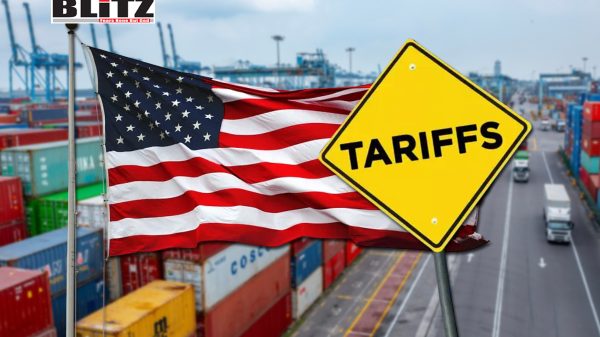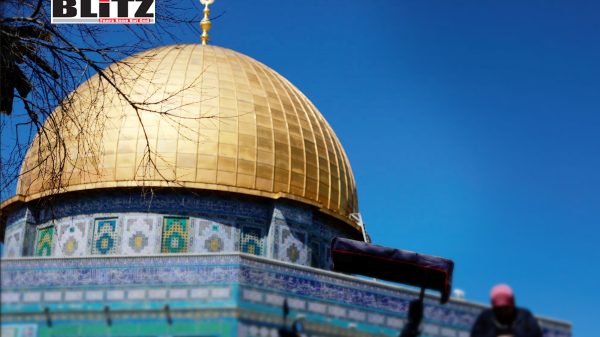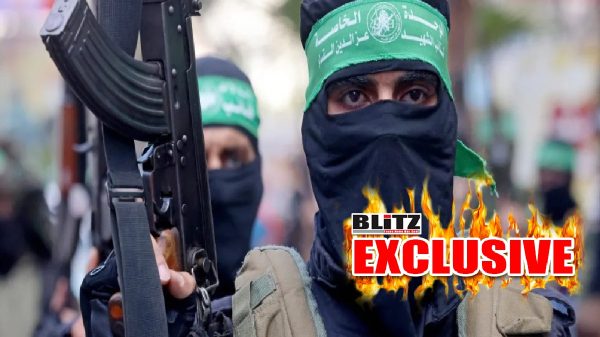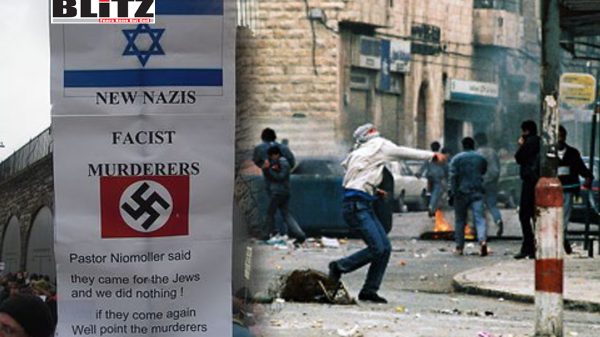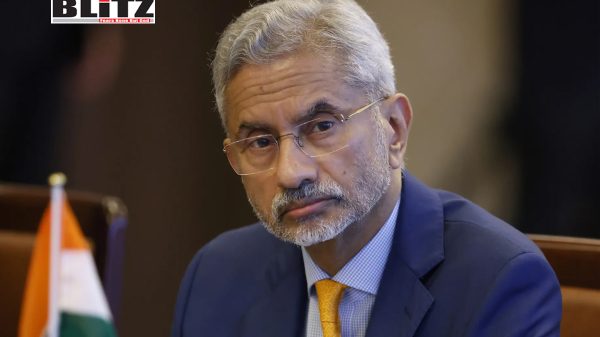Exposé – Uyghur millionaire’s son funds London mosque linked to money laundering and extremism
- Update Time : Wednesday, October 8, 2025
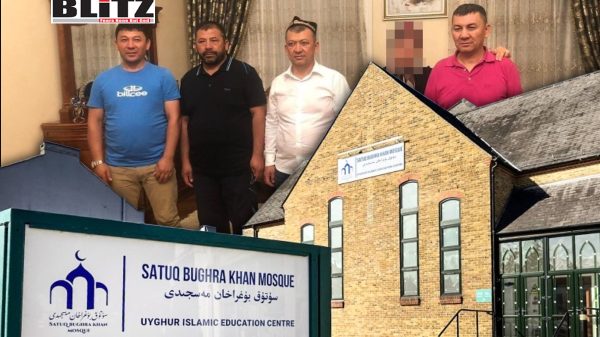
The Satuq Bughra Khan Mosque, located at 611 Green Lanes, London N13 4EP, and housing the so-called “Uyghur Islamic Education Center”, is funded by the son of a Chinese-born Uyghur millionaire. According to credible investigations, this establishment – like dozens of other newly built mosques and Islamic centers across the United Kingdom – is quietly advancing an Islamist agenda aimed at expanding political Islam and influencing the country’s multicultural fabric.
On its website, the mosque describes its purpose as a sanctuary for the Uyghur community, portraying itself as a place of worship and cultural preservation. It states:
The Uyghurs, a predominantly Turkic-speaking Muslim community, are the largest ethnic minority in north-western China. With deep cultural and historical ties to Central Asia, they are a distinct group with a rich heritage.
Since 2017, China has detained over three million Uyghurs and other Muslim minorities, including Kazakhs and Uzbeks, in what it calls “re-education” facilities. These detentions often involve forced labor, lengthy prison sentences, and the systematic suppression of religious and cultural practices, including the destruction of mosques. For the estimated 35 million Uyghurs living outside these camps, life remains marked by severe oppression. Families are torn apart, with over 500,000 children separated from their parents.
Women face coercion to marry non-Uyghur men, further eroding their Muslim and cultural identity. These measures are part of a broader, decades-long crackdown by authorities that continues to shape the region’s reality.
The UK First Uyghur Mosque & Uyghur Islamic Education Centre’s mission plays a vital role in this struggle, providing a space where Uyghur Muslims can come together to practice their faith, preserve their cultural heritage, and raise awareness about the ongoing plight of their people in Xinjiang. By focusing on education, community building, and advocacy, such centers help ensure that the voices of the Uyghur community are heard globally, contributing to the fight for justice.
The center claims to serve as a hub for education, community-building, and advocacy for Uyghurs abroad, portraying its mission as a humanitarian and cultural one. However, investigations by the Organized Crime and Corruption Reporting Project (OCCRP) and Weekly Blitz reveal a far more complex and troubling picture behind the origins of its funding.
A mosque funded by smuggled and laundered wealth
According to the OCCRP, Nur Muhammed Palvan, the son of Chinese-born Uyghur billionaire Khabibula Abdukadyr, purchased a former church in London for more than US$3 million in 2023. The property, located in the multicultural north London neighborhood of Palmers Green, was subsequently converted into the Satuq Bughra Khan Mosque and Uyghur Islamic Education Centre.
Palvan currently chairs the Board of Trustees of Izqilar, the Uyghur charity that manages the mosque. While there is no direct evidence that the charity’s staff were aware of the money’s origin, OCCRP’s findings suggest that the funds may be tied to one of the world’s largest transnational money -laundering and smuggling operations.
The 2019 OCCRP investigation into Palvan’s father, Khabibula Abdukadyr, uncovered a vast network involved in smuggling goods across Central Asia and laundering hundreds of millions of dollars. This investigation, conducted with Kloop and RFE/RL, was based on documents and testimony from a former employee who later was murdered in Istanbul shortly after cooperating with journalists.
Leaked documents revealed that, while living in the UK under an alias, Palvan received over US$1.8 million through his father’s illicit financial network. Under the name Aibibula Nuermaimaiti, he also held ownership of major companies and assets tied to the Abdukadyr family’s empire.
Web of corruption spanning continents
The Abdukadyr network’s reach extended into Central Asian politics. OCCRP identified a former Kyrgyz customs official who had facilitated the smuggling routes and laundered funds on the family’s behalf. Although he was later prosecuted for corruption, the family’s business empire continued to grow – expanding into real estate projects across Central Asia, the Middle East, and the United Kingdom.
In 2023, the same month OCCRP’s follow-up report was released, Palvan purchased the London church property for £2.6 million (about US$3.2 million) through a newly registered entity, Palvan Ltd. The precise origin of the funds remains unclear, though evidence of transfers from his father’s network raises serious concerns about their legitimacy.
A promotional brochure issued by Izqilar detailed plans to refurbish the former church “in the traditional architecture of the Uyghur Mosque style” and add a dedicated women’s prayer area. Photographs now show the mosque fully renovated, and its grand opening – hailed as “the UK’s first Uyghur Masjid” – was celebrated in January 2025. The site hosts daily prayers, religious classes, and Uyghur language instruction.
Expanding religious and financial footprint
The Abdukadyr family’s real estate portfolio in the UK is substantial. In addition to the mosque, the family owns a mansion purchased in 2015 for US$6.8 million, as well as commercial and residential properties across London, including a US$27 million site in Ealing for a planned hotel project.
Globally, the family’s holdings – identified by OCCRP reporters – extend across Dubai, Turkey, Kazakhstan, and Kyrgyzstan, encompassing luxury developments and at least two other religious projects: a US$15 million religious complex in Kazakhstan and a mosque in Bishkek.
Dark shadows behind the London mosque
A confidential source familiar with the activities of the Satuq Bughra Khan Mosque told Weekly Blitz that under the guise of religious and community projects, members of the Abdukadyr family are using the facility as a front for transnational money laundering. The source also claimed that large sums are being funneled into propaganda operations designed to amplify narratives about Uyghur oppression in Xinjiang – often intertwined with Islamist messaging aimed at radicalizing sympathizers.
Even more concerning are allegations that extremist groups such as Tabligh Jamaat, Hizb ut-Tahrir, and Hamas have held private meetings at the mosque. According to the source, these gatherings include discussions around jihadist plots targeting Jews and Christians in Europe.
A wake-up call for British authorities
If these allegations are substantiated, the Satuq Bughra Khan Mosque could represent a dangerous intersection between religious activism, transnational crime, and extremist ideology – all operating under the protective umbrella of “community outreach” and “human rights advocacy”.
The ongoing investigations by international watchdogs and media outlets raise urgent questions: How much of London’s religious infrastructure is being quietly financed by global money-laundering syndicates? And to what extent are Britain’s liberal institutions being exploited by foreign networks pursuing ideological and political influence?
Unless British authorities act decisively, London risks becoming not just a haven for illicit wealth – but a breeding ground for Islamist expansionism camouflaged as humanitarian aid.



